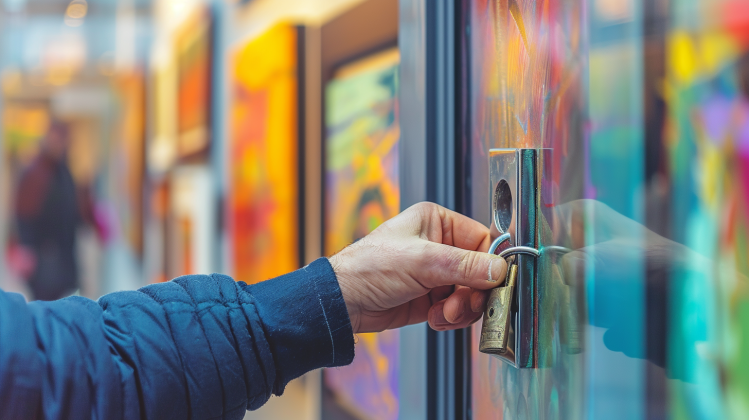As the generative AI era continues to advance, artists are facing the challenge of protecting their work from AI algorithms trained on data sourced from the internet. In response, a new tool called Kin.art has emerged, offering artists a defense not just for individual images, but for their entire portfolio. Kin.art is part of an online art hosting platform that provides built-in AI defenses to artists who upload their work to its servers. Unlike existing tools like Nightshade and Glaze, Kin.art prevents unauthorized AI training from happening in the first place, rather than simply mitigating the damage retroactively.
The AI Defense Mechanism of Kin.art
Kin.art utilizes two techniques to protect artists’ work: image segmentation and label fuzzing. Image segmentation involves breaking down the artist’s image into smaller pieces using machine learning algorithms. This process “scrambles” the image, making it appear disorderly to AI algorithms while looking intended to the human eye. Additionally, any unauthorized attempt to save or download the image will result in an additional layer of scrambling. Label fuzzing, on the other hand, disrupts the label associated with the image, such as its title or description. By offering scrambled versions of the image and its associated label, Kin.art ensures that AI algorithms cannot accurately learn from the scraped data, preserving the artist’s work.
“This dual approach guarantees that artists who showcase their portfolios on Kin.art are fully shielded from unauthorized AI training of their work,” says Flor Ronsmans De Vry, co-founder and CTO of Kin.art.
How Artists Benefit from Kin.art
Kin.art offers its AI defense features free of charge for artists. By creating an account on the Kin.art website, artists can upload their work and enable or disable the AI protection as desired. To generate revenue, Kin.art plans to introduce a “low fee” for artworks that are sold or monetized using the platform’s e-commerce features.
“In the future, we’ll charge a low fee on top of any commission processed by our platform to fuel our growth and allow us to keep building products for the people we care about,” Ronsmans De Vry explains.
About Kin.art and Its Founders
The founding team of Kin.art, including Flor Ronsmans De Vry, was previously involved in Curious Addys Trading Club, an NFT artwork collection and platform. Inspired by the need for a better way to manage commission requests and the rising concerns of AI infringement on artists’ rights, they developed Kin.art as a solution. The name “Kin.art” is a play on the English and Japanese meanings of “kin,” which refers to family in English and gold in Japanese. Kin.art aims to create a thriving community of artists where both human and AI-created art can coexist.
As Kin.art is officially introduced to the public, the platform welcomes artists to utilize its AI protection features and safeguard their work from unauthorized AI training. By disrupting the AI learning process, Kin.art empowers artists and ensures that their data is treated with respect and integrity.










